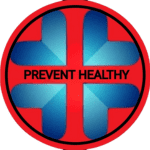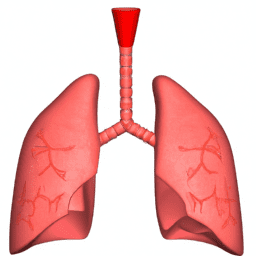Cardiovascular System, Lungs
Lungs:How to keep your lungs healthy: 7 easy tips to breathe better
![]()
How to keep your lungs healthy: 7 easy tips to breathe better
Our lungs play a crucial role in our overall health and well-being. They are responsible for supplying oxygen to the body and removing carbon dioxide, a waste product produced by the cells. Keeping our lungs healthy is essential for optimal lung function and overall respiratory health. In this article, we will share seven easy tips that can help you breathe better and maintain healthy lungs.
Tip 1: Quit smoking
It’s no secret that smoking is harmful to our health, particularly for our lungs. The harmful chemicals in tobacco smoke can damage the airways and the tiny air sacs in the lungs, leading to various respiratory problems such as chronic bronchitis, emphysema, and lung cancer. Quitting smoking is the best thing you can do to protect your lungs and improve your overall health. If you need help quitting, reach out to your healthcare provider for guidance and support.
Tip 2: Exercise regularly
Regular exercise is not only beneficial for cardiovascular health but also for lung health. When you engage in physical activity, your breathing rate increases, which helps to improve the efficiency of your lungs. Exercise also helps to strengthen the respiratory muscles and improves lung capacity. Aim for at least 30 minutes of moderate-intensity exercise most days of the week, such as brisk walking, jogging, cycling, or swimming.
Tip 3: Avoid pollution
Exposure to pollution, both indoors and outdoors, can have a detrimental effect on our lung health. Air pollution, allergens, and irritants can irritate the airways and cause inflammation, making it harder to breathe. To minimize your exposure to pollution, avoid going outdoors during times of high pollution, use air purifiers and filters at home, and keep your living spaces clean and dust-free.
Tip 4: Practice deep breathing exercises
Deep breathing exercises can help to improve lung function and increase lung capacity. These exercises involve taking slow, deep breaths, filling your lungs with as much air as possible, and then slowly exhaling. Some popular deep breathing techniques include diaphragmatic breathing, pursed-lip breathing, and alternate nostril breathing. Incorporate these exercises into your daily routine to strengthen your respiratory muscles and improve oxygen intake.
Tip 5: Stay hydrated
Drinking plenty of water is essential for overall health, including lung health. Staying hydrated helps to thin mucus secretions in the airways, making it easier to cough up and expel any trapped phlegm. It also helps to maintain the elasticity of the lungs, allowing for efficient oxygen exchange. Aim to drink at least eight cups of water per day, and more if you are physically active or in a dry environment.
Tip 6: Eat a healthy diet
A healthy diet rich in fruits, vegetables, whole grains, and lean proteins is beneficial for lung health. Certain nutrients, such as antioxidants and omega-3 fatty acids, can help to reduce inflammation in the airways and protect against lung damage. Include foods like berries, leafy greens, nuts, fish, and olive oil in your diet to support lung health. Avoid processed foods, excessive salt intake, and sugary drinks, as they can contribute to inflammation and respiratory problems.
Tip 7: Get regular check-ups
Regular check-ups with your healthcare provider are essential for monitoring your lung health. Your doctor can perform lung function tests, such as spirometry, to assess how well your lungs are working. They can also provide guidance on managing any existing respiratory conditions and offer advice on strategies to improve your lung health. If you experience any symptoms such as persistent cough, shortness of breath, or wheezing, don’t hesitate to seek medical attention.
FAQs:Lungs
-
Can secondhand smoke affect lung health? Absolutely. Secondhand smoke contains many of the same harmful chemicals as direct smoke, and exposure to it can cause respiratory problems and increase the risk of lung cancer.
-
Are there any specific exercises that can help strengthen the respiratory muscles? Yes, exercises like swimming, yoga, and Pilates can help strengthen the respiratory muscles, improve lung capacity, and enhance overall lung health.
-
Can air pollution indoors be as harmful as outdoor pollution? Yes, indoor air pollution can be just as harmful, if not more, compared to outdoor pollution. Common sources of indoor air pollution include cigarette smoke, cooking fumes, and household cleaning products.
-
Can certain foods worsen lung health? Yes, foods high in saturated fats, processed sugars, and artificial additives can


Recommended Products
Cancer Health Care Set 2
Royal Vita
Erectile Dysfunction Health Care Set
Rheumatoid Health Care Set